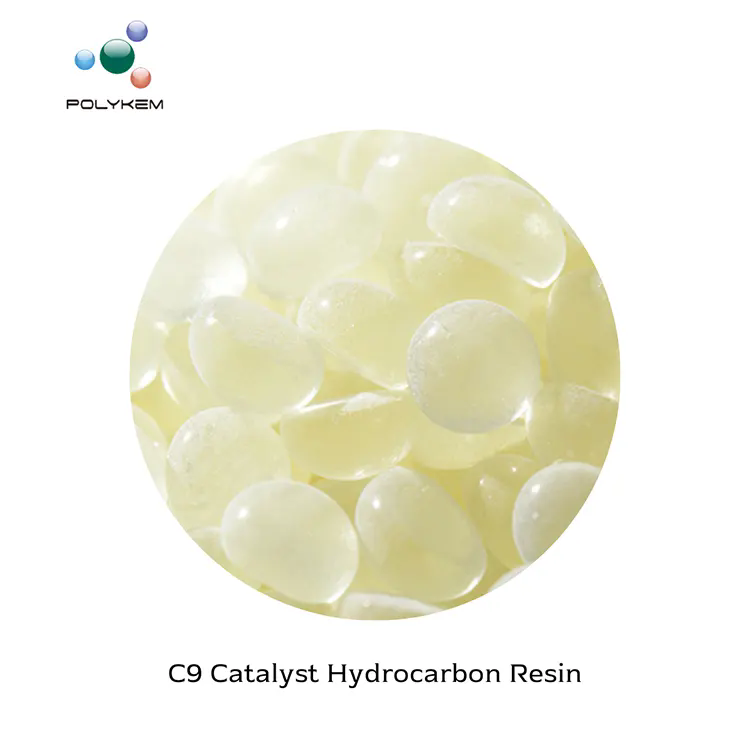Why Choose Hydrocarbon Resin
2025-08-27
Hydrocarbon resin has become an indispensable material across a wide range of industries, from adhesives and coatings to printing inks and rubber compounding. Its unique chemical properties, consistent performance, and compatibility with diverse polymers make it a preferred choice for manufacturers seeking enhanced quality and cost-effectiveness.
What Is Hydrocarbon Resin and Why It Matters
Hydrocarbon resin is a synthetic polymer derived from petroleum-based feedstocks such as C5, C9, or DCPD fractions. It plays a critical role as a tackifier, binder, or modifier in various industrial applications. Due to its low molecular weight, excellent adhesion properties, and chemical stability, it is widely used in adhesives, paints, coatings, rubber, and even packaging solutions.
Key Benefits of Hydrocarbon Resin
-
Enhanced Adhesion – Improves tackiness and bonding strength in adhesives and sealants.
-
Thermal Stability – Performs reliably under high temperatures without significant degradation.
-
Chemical Resistance – Offers excellent resistance to acids, alkalis, and moisture.
-
Cost Efficiency – Provides high performance at a competitive price point compared to natural resins.
-
Versatile Compatibility – Easily blends with polymers like EVA, SIS, SBS, polyethylene, and polypropylene.
Hydrocarbon resins are broadly categorized based on their feedstock source and properties:
| Type | Feedstock | Appearance | Softening Point (°C) | Applications |
|---|---|---|---|---|
| C5 Hydrocarbon Resin | Aliphatic hydrocarbons | Light yellow | 80–100°C | Hot-melt adhesives, road marking paints |
| C9 Hydrocarbon Resin | Aromatic hydrocarbons | Darker brown | 90–110°C | Printing inks, coatings, rubber compounding |
| Hydrogenated Hydrocarbon Resin | Hydrogenated C5/C9 | Water-white transparent | 95–140°C | Premium adhesives, food packaging |
| DCPD Resin | Dicyclopentadiene | Light yellow | 120–140°C | High-performance coatings, paints |
By choosing the right type of hydrocarbon resin, manufacturers can optimize product performance while reducing overall production costs.
How Hydrocarbon Resin Powers Industrial Applications
Hydrocarbon resin's value lies in its versatility. Whether you're in adhesives, coatings, or rubber manufacturing, it serves as a key performance enhancer. Below are the major sectors where hydrocarbon resin delivers exceptional results:
Adhesives and Sealants
Hydrocarbon resin acts as a tackifier in hot-melt and pressure-sensitive adhesives. It enhances initial tack, improves peel strength, and ensures long-lasting adhesion. Whether used in packaging, labeling, bookbinding, or hygiene products, hydrocarbon resin ensures consistency and superior bonding performance.
Paints and Coatings
In road-marking paints, hydrocarbon resin ensures rapid drying, high color stability, and strong adhesion to asphalt and concrete surfaces. For industrial coatings, its chemical resistance and film-forming properties make surfaces more durable and weather-resistant.
Rubber Compounding
In tire and rubber manufacturing, hydrocarbon resin acts as a processing aid and tackifier, improving the bonding of rubber compounds during production. It enhances grip, elasticity, and performance under extreme weather conditions.
Printing Inks
C9 hydrocarbon resin is widely used in printing inks due to its excellent pigment wetting properties and fast-drying behavior. It ensures high print quality, vivid colors, and smear resistance, making it suitable for packaging, newspapers, and magazines.
Packaging Solutions
With the growing demand for sustainable and durable packaging, hydrogenated hydrocarbon resins are increasingly used in food-safe adhesives and laminated films. Their water-clear appearance, odorless nature, and FDA compliance make them ideal for premium packaging applications.
Frequently Asked Questions (FAQs) About Hydrocarbon Resin
Q1. What is the difference between C5 and C9 hydrocarbon resins?
Answer:
C5 hydrocarbon resin is derived from aliphatic hydrocarbons and is generally lighter in color, offering excellent tackifying properties. It is commonly used in hot-melt adhesives, road-marking paints, and packaging solutions.
C9 hydrocarbon resin, on the other hand, is derived from aromatic hydrocarbons and has a darker color, better chemical resistance, and superior compatibility with printing inks and industrial coatings. Choosing between C5 and C9 depends on your application requirements.
Q2. Are hydrocarbon resins safe for food packaging applications?
Answer:
Yes, hydrogenated hydrocarbon resins are widely used in food-safe packaging applications. Their colorless and odorless properties, combined with compliance to FDA and EU food-contact regulations, make them suitable for adhesive layers in laminated packaging films and labeling adhesives. However, non-hydrogenated grades may not be appropriate for direct food contact, so it is critical to select the correct specification for your intended use.
Why Polykem Is Your Trusted Hydrocarbon Resin Partner
Selecting the right hydrocarbon resin supplier is crucial for ensuring consistent product quality, performance, and regulatory compliance. Polykem offers a complete portfolio of C5, C9, hydrogenated, and DCPD-based hydrocarbon resins engineered to meet diverse industrial requirements. With strict quality control, competitive pricing, and global distribution, Polykem helps manufacturers stay ahead in highly competitive markets.
Whether you’re in adhesives, coatings, printing, or packaging, our hydrocarbon resins deliver unmatched performance and reliability.
Contact us discuss your specific needs and request a tailored solution that meets your production goals.
